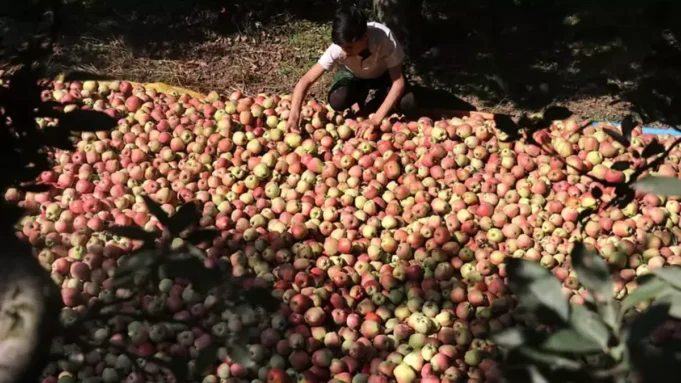On Tuesday, the central government said that the removal of additional punitive duties and the additional rate for the import of US apples, walnuts, and almonds will not have a negative effect on domestic producers despite the controversy surrounding the removal of customs duties on those imports from the US.
According to a handout obtained by the PIB, India has withdrawn additional duties on eight products with US origin, including apples, walnuts, and almonds, in light of the decision to settle six unresolved World Trade Organisation (WTO) disputes between the US and India through mutually agreed solutions in June 2023.
“Additional duties of 20% each on apples and walnuts and Rs 20 per kg on almonds were imposed on the US’s products in 2019 over and above the Most Favoured Nation (MFN) duty as a retaliation to the US’s state protectionist measure of increasing tariffs on certain steel and Aluminium products,” the handout stated.
The US agreed to provide market access to steel and aluminium items through the exclusion procedure, thus India withdrew the extra taxes it had placed on US-origin goods. The Most Favoured Nation (MFN) tariff on apples, walnuts, and almonds remains at 50%, 100%, and Rs 100 per kg, respectively, and is still applied to all imported goods, including those of US origin.
Additionally, the DGFT amended the import regulations for apples under ITC (HS) 08081000 by imposing a MIP (Minimum Import Price) of Rs. 50 per kg for imports from all nations other than Bhutan, as stated in its notice number 05/ 2023 dated 8 May 2023. Therefore, apples from the US and other nations (with the exception of Bhutan) will also be subject to this MIP. With this strategy, the Indian market would be protected against predatory pricing and the dumping of subpar apples.
This action won’t have any adverse effects on domestic producers of apples, walnuts, and almonds. Instead, it will lead to competition in the premium apple, walnut, and almond market sector, guaranteeing greater quality at affordable rates for our Indian clients. Accordingly, US apples, walnuts and almonds would compete on an even playing field with all other nations, the handout continued.
As other nations benefitted from the application of further retaliatory levies on the importation of US apples and walnuts, the market share of US apples decreased.
The rise in apple imports from nations other than the US, from US$ 160 million in FY 2018–19 to US$ 290 million in FY 2022–23, is evidence of this. Turkey, Italy, Chile, Iran, New Zealand, and other countries have become significant apple exporters to India, thereby capturing the market share that the US once controlled. Similar to how imports of walnuts climbed from US$35.11 million in FY 2018–19 to US$53.95 million in FY 2022–23, Chile and the United Arab Emirates emerged as India’s top exporters. Almond imports have totaled roughly 233 thousand MT during the last three years, compared to India’s local output of about 11 thousand MT. As a result, the elimination of extra taxes will now guarantee fair competition among the nations that export these goods to India.










